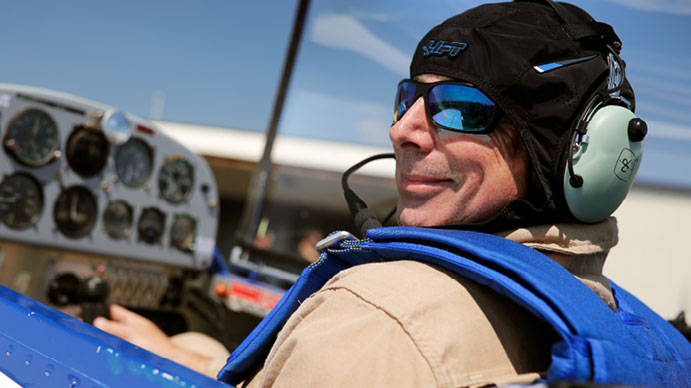Unusual attitude
Last flight

[email protected]
During a simulated engine failure, the elderly pilot had trouble selecting a suitable place for an off-field landing. And his situational awareness and airspeed control were marginal. Really, less than marginal. They were substandard. I knew it, and so did he.
“The third time’s the charm,” he said with a mix of feigned optimism and gallows humor after a second botched engine-out glide. But the third attempt was awful, too, and it would have ended downwind, short of our target, in a line of tall trees despite the presence of abundant, flat farm fields in the area we were flying.
We’d been airborne for an hour, and it was time to return to the pilot’s home field. But even that seemingly routine process was plagued by mistakes and unforced errors. He stumbled with programming his panel-mount GPS, missed a radio call, and errantly reported his position and direction of flight to the tower controller.
I dreaded telling this highly experienced, veteran aviator that I wouldn’t sign off his flight review—but I didn’t believe I had a choice. I told him I’d be glad to provide dual instruction or set him up with another instructor who could help him sharpen his technique, but his performance on this flight didn’t meet the required standards for safety or proficiency.
He took the news stoically and without complaint, even though he must have been disappointed and embarrassed. But this pilot had become accustomed to dealing with loss. His wife of many years had died several years before after a long illness, and he had been her constant caregiver. Flying, and building a Van’s RV–12 kit airplane, had provided some relief from that exhausting and emotionally wrenching duty. And the airplane he built was a thing of beauty.
I’d signed off his previous two flight reviews and noted a few rough spots. His radio skills were weak, so he addressed that shortcoming by plugging in a handheld radio and tuning it to the tower frequency during the many hours he toiled in his hangar.
He had built, owned, and flown many airplanes over the decades, including a Stearman biplane with a well-deserved reputation for ornery ground handling. During our previous flights in his RV–12, I’d been impressed by his instinctive feel for the airplane, and his uncanny ability to set it down gently on the runway centerline—no matter how strong the wind was blowing, or its direction.
During our unsatisfactory flight review, however, his usually sure hands had an unmistakable tremor. Was he nervous? Flustered? Cold? I wasn’t sure and, frankly, didn’t give it much thought because I was busy monitoring the troublesome flight itself.
A few weeks later, however, I saw him working in his hangar and ducked inside.
“Hey, I’ve got a short story to tell you,” he said. “I’ve got Parkinson’s.”
His deteriorating flying skills and unsteady hands suddenly made sense in the cruelest way possible. My dad died from Parkinson’s disease, and that process wasn’t quick, or painless, or merciful.
The pilot said he was going to sell his RV–12 and, since I was familiar with it, he asked whether I’d be willing to provide demonstration flights for prospective buyers.
Of course, and I let him know I’d happily fly with him any time of the day or night he decided he wanted to get off the ground.
The unsatisfactory flight review foretold far bigger problems than rusty flying skills. The veteran pilot pursued aviation with skill and vigor, and he generously helped fellow fliers along the way. He left aviation in a better place through his lifelong participation in it.
As pilots, we fondly remember our first flights, and we celebrate milestones such as first solos and successful checkrides. But each of us has a last flight, too.
I won’t dwell on it—but I hope that when my last flight comes, I’ll accept it with a fraction of the grace and dignity of this veteran aviator.


